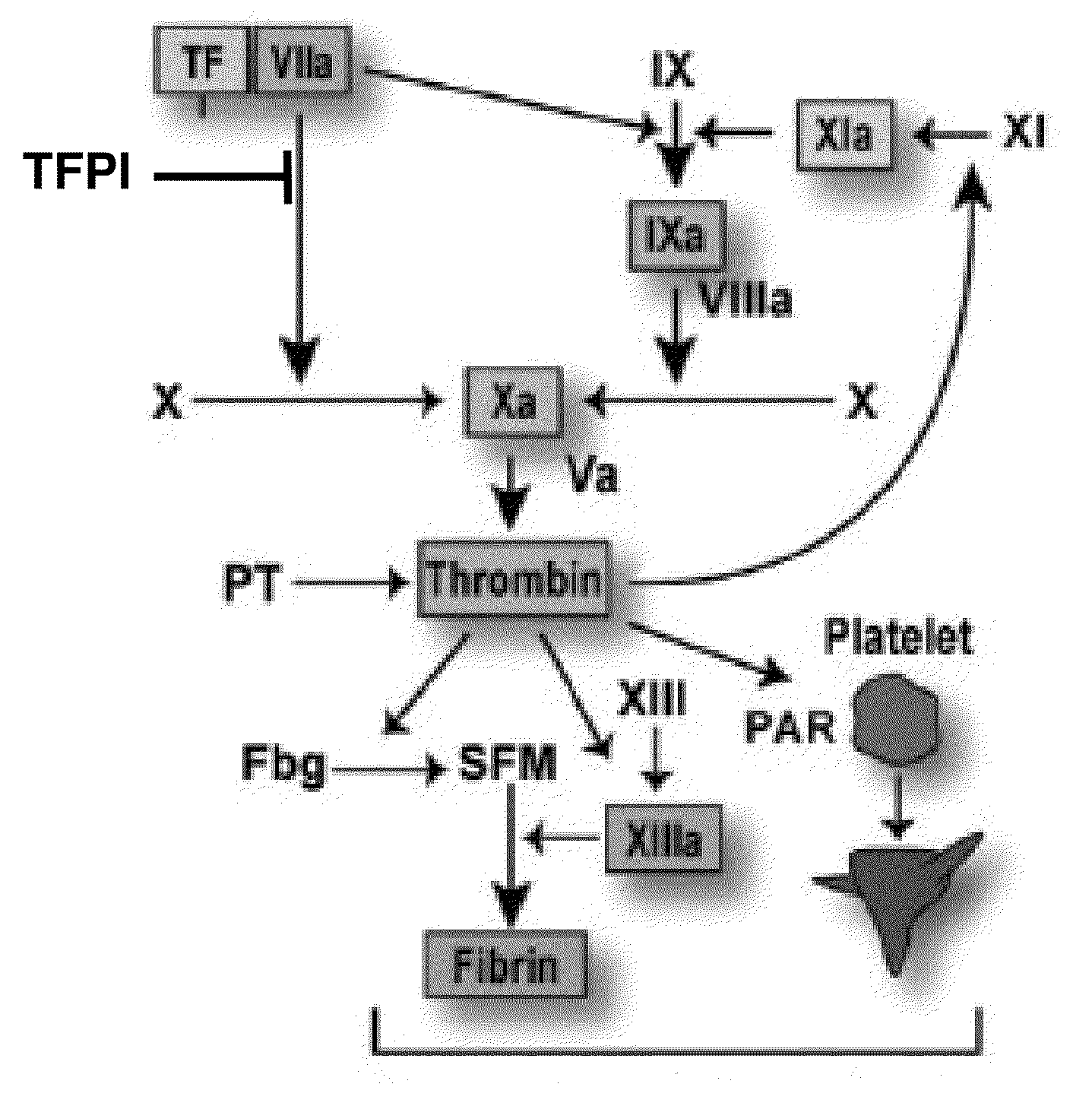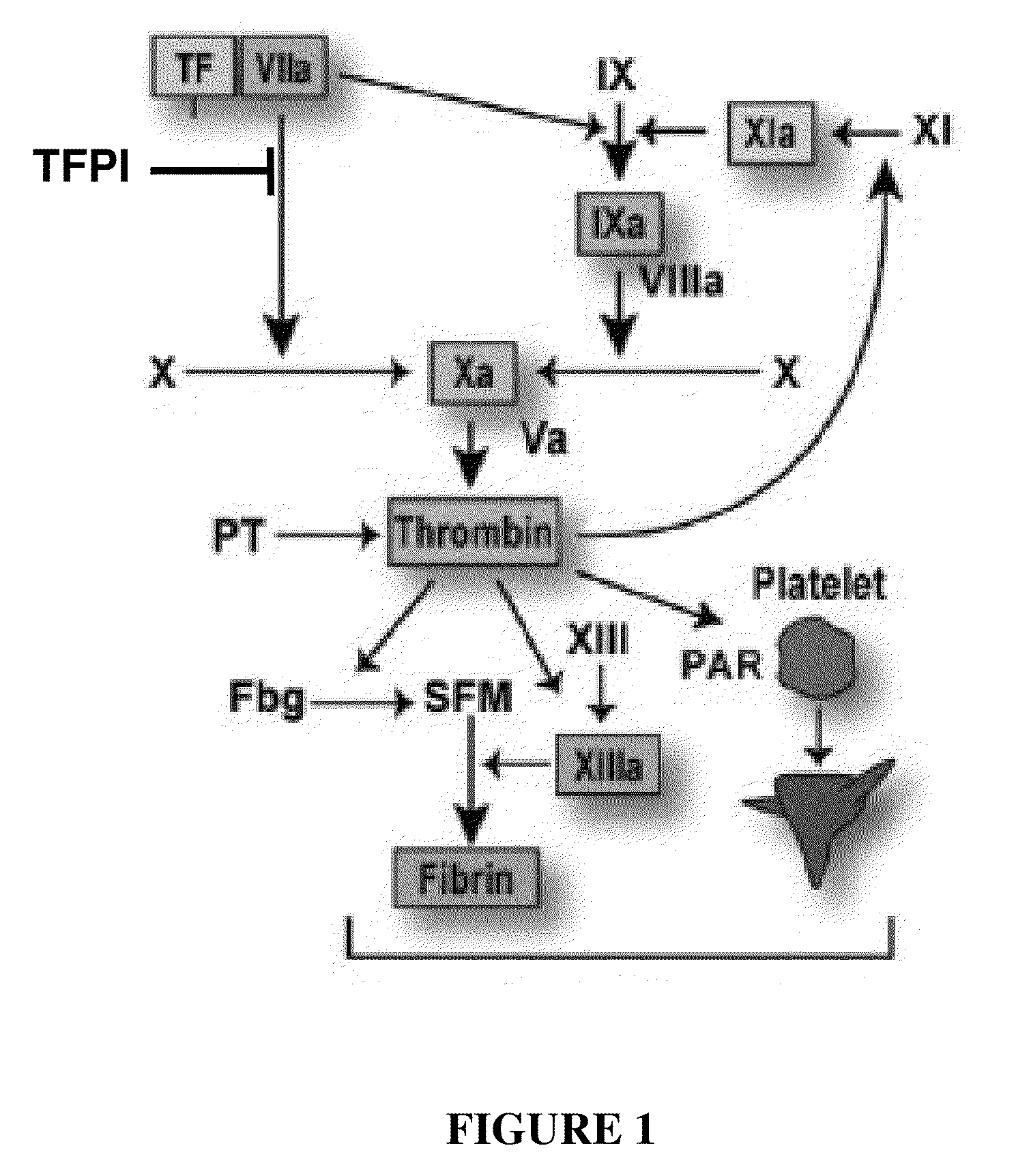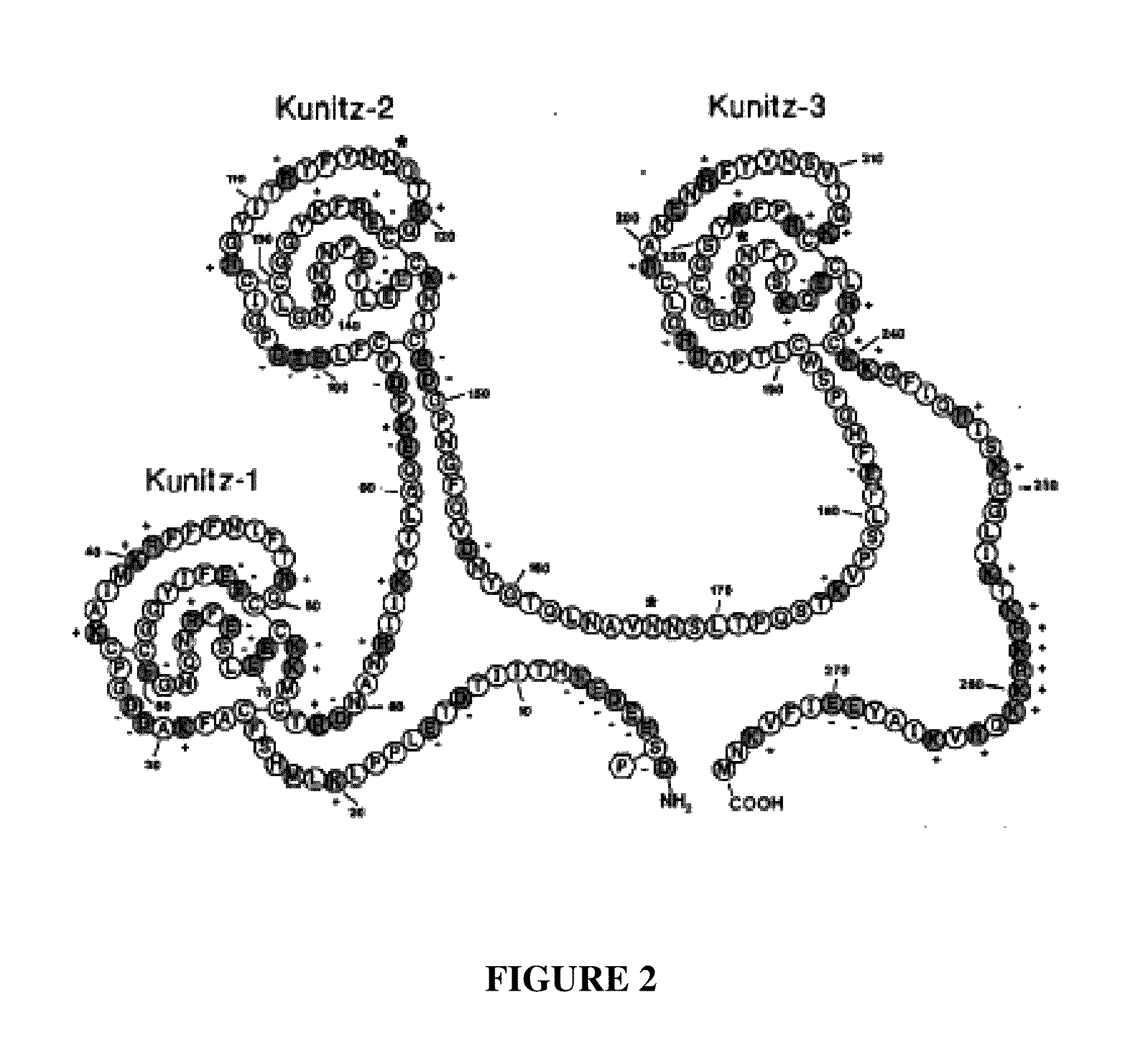TFPI inhibitors and methods of use
- Summary
- Abstract
- Description
- Claims
- Application Information
AI Technical Summary
Benefits of technology
Problems solved by technology
Method used
Image
Examples
example 1
[0338]The following example describes production, identification, and screening of peptides for binding to TFPI.
[0339]Peptides candidates were obtained from commercial suppliers (e.g., PolyPeptide Laboratories SAS (Strasbourg, France) and JPT Peptide Technologies GmbH (Berlin, Germany)). Methods for synthesizing candidate peptides are provided above. Candidate peptides were synthesized as trifluoroacetate (TFA) salts with a purity >90% or >60%. All peptides were solved in DMSO to a stock concentration of 10 mM. TFPI-binding peptide sequences were identified using an mRNA display library. The mRNA display technology is superior to other library screening techniques for allowing for a diversity of 1014 different sequences within a starting pool and avoiding, e.g., the in vivo steps required for phage display. In brief, the technology involves directly linking mRNA to its encoded candidate peptide through a puromycin molecule (FIG. 5). The mRNA display method is further described in In...
example 2
[0347]Selected TFPI-binding peptides were further characterized in terms of “anti-target” binding. This example demonstrates that TFPI-inhibitory peptides exhibit reduced affinity for non-TFPI-1 proteins.
[0348]TFPI-2 was selected as an anti-target because of its similarity to TFPI-1. The binding kinetics of TFPI-binding peptides to human TFPI-1 (residues 29-282 fused at the C-terminus to a 10 His-tag; MW 41 kDa (R&D Systems, Minneapolis, Minn.; catalog number 2974-PI)) murine TFPI-1 (residues 29-289 fused at the C-terminus to a 10 His-tag; MW 41 kDa (R&D Systems; catalogue number 2975-PI)), and TFPI-2 (R&D Systems, Minneapolis, Minn.) were studied using a BIAcore 3000™ surface plasmon resonance assay (GE Healthcare, Chalfont St. Giles, UK). TFPI proteins were immobilized on a Cl chip (GE Healthcare, Order Code: BR-1005-40) by amine coupling chemistry aiming for 500 RU. Several TFPI-binding peptides were employed as analytes for interacting with the immobilized TFPI proteins. A flow ...
example 3
[0352]The following example describes the characterization of TFPI-inhibitory activity of select peptides identified in Example 1 using a FXa inhibition and extrinsic tenase inhibition assay. Both assays are predictive of activity in plasmatic systems. The extrinsic tenase assay gives insight into the influence of the peptides on (a) the interaction of FXa and TFPI and (b) the interaction of the FXa-TFPI complex with the TF-FVIIa complex. The FXa inhibition assay measures a peptide's influence on the interaction of FXa and TFPI only.
[0353]The extrinsic tenase complex is responsible for FX and FIX activation upon initiation of the coagulation process. The extrinsic complex is composed of FVIIa, Tissue Factor (TF), and FX substrate. To determine the influence of peptides on the TFPI-mediated inhibition of the extrinsic tenase complex, a coupled enzyme assay was established. Peptides were diluted 1 / 6.25 from 10 mM stocks (in DMSO) and further diluted by serial 1 / 4 dilutions in DMSO to ...
PUM
| Property | Measurement | Unit |
|---|---|---|
| Fraction | aaaaa | aaaaa |
| Fraction | aaaaa | aaaaa |
| Volume | aaaaa | aaaaa |
Abstract
Description
Claims
Application Information
 Login to View More
Login to View More - R&D
- Intellectual Property
- Life Sciences
- Materials
- Tech Scout
- Unparalleled Data Quality
- Higher Quality Content
- 60% Fewer Hallucinations
Browse by: Latest US Patents, China's latest patents, Technical Efficacy Thesaurus, Application Domain, Technology Topic, Popular Technical Reports.
© 2025 PatSnap. All rights reserved.Legal|Privacy policy|Modern Slavery Act Transparency Statement|Sitemap|About US| Contact US: help@patsnap.com



